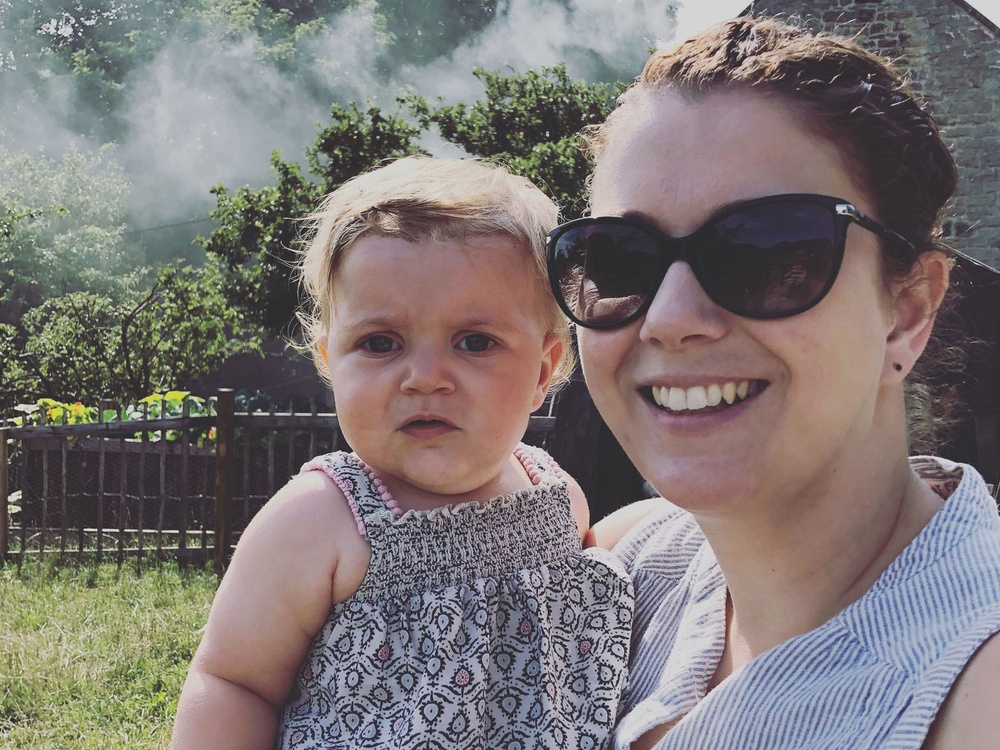We first made contact with Liz around 10 years ago when our baby girl, Lauren, was diagnosed with a mitochondrial disorder. At the time there was very little information in the public domain about mitochondrial disease, and there didn’t appear to be any support groups or charities other than The Lily Foundation. Liz had created the charity after losing her own daughter to the same disease and, like us, finding little or no help when they really needed it. Liz was a great support; we could phone or email at any time of day or night and we'd get a reply. The charity was still very small at this point, and Liz was running it almost on her own, with just a few family and friends helping out.
Our daughter had a type of mitochondrial disease called DNA Depletion Syndrome. At the time, we were not aware of any other child in the country with this disease. Doctors told us that Lauren's particular genetic change was so rare there was a bigger chance of winning the lottery than being born with it. The diagnosis was a devastating blow, and to make matters even worse, we were told that any subsequent children we had could also have the disease. We were facing not just the loss of our only child, but also the chance of ever trying for a baby again.
That’s where The Lily Foundation changed our lives. As luck would have it the Lily Exome Sequencing project had just been launched, making it far easier for families affected by mitochondrial disease to try and identify the precise gene that was causing it. Having a genetic diagnosis is really important for a family with mitochondrial disease, as it means you can make important decisions about future family planning and look at different reproductive options. We were the first family to be put forward for Lily Exome Sequencing, and we were incredibly lucky – they found the faulty gene. Having that information opened up new options for us, like CVS testing in pregnancy or even PGD, which is an advanced type of IVF for couples who are at risk of having a child with a specific genetic condition. So our future was looking better already.
We opted for CVS testing in pregnancy. Our sample was sent off to be analysed again, and we had a healthy, mito-free little boy in 2012. We then went on to have another baby, this time a girl, in 2017, and our family is now complete. We can never repay The Lily Foundation for that.
Without The Lily Foundation and the funding it gives to mitochondrial research, we may never have had the two healthy children we have today. The charity has helped many other families like ours get a genetic diagnosis. For some it means better clinical care for their sick children, and for others it's the freedom to have more children without worrying they might be born with this devastating disease.
Through The Lily Foundation, we've met other families who have lost children to mitochondrial disease, or who have children living with the disease. Some of these families have become lifelong friends. Mitochondrial disease can be terribly isolating, and knowing people who have been on a similar journey makes a huge difference. The charity and the services it provides are a lifeline for many, many people.
My husband and I always say we feel incredibly lucky. That might sound odd, given what we've been through, but we do feel immensely fortunate to have our two beautiful children, and to have the support of good friends who know exactly how we feel. The Lily Foundation is really like a big family. It gives people hope, and that is the greatest thing you can give to someone going through this journey. The experience of losing a child to mitochondrial disease is not something that can be put into words. The support we have received from this charity has been life-changing, and we will always be grateful for that.

